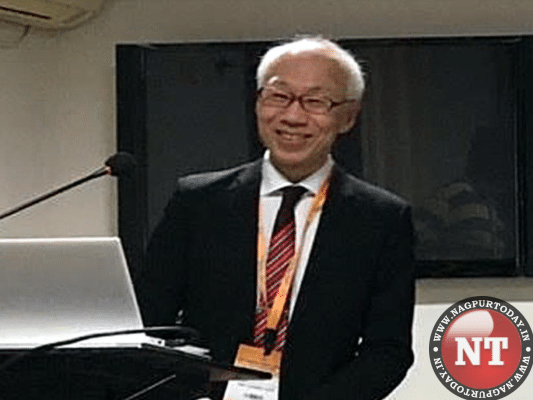
Nagpur: A proprietary diagnostic test has been developed which is highly sensitive and is capable of detecting liver disease from the blood serum samples. Dr Bishnu Pada Chatterjee, Emeritus Professor, Department of Natural Sciences, West Bengal University of Technology, Kolkata, informed that as the test uses only blood serum samples, it is minimally invasive and inexpensive as well.
He was speaking on the ‘Implications of Glycobiology in Human Health, Disease and Cancer Therapeutics’ during the 13th plenary session at the 108th Indian Science Congress hosted at Rashtrasant Tukadoji Maharaj Nagpur University. During the session, Dr Chatterjee also highlighted the potential for commercial development of the proprietary test developed.
He explained how Hepatitis B virus is a major cause of chronic liver disease in Asia and India. The talk also touched upon the detection of serum phosphoproteins in chronic hepatitis B, cirrhosis of the liver and hepatocellular carcinoma (HCC) through various methods.
While speaking regarding the pathogenesis of many relevant human diseases, including cancer, fibrosis, and diabetes that are associated with chronic inflammation, Dr Hafiz Ahmed, President and CEO of GlycoMantra Inc., Biotechnology Center at the University of Maryland, USA, said efforts were being made to develop a proprietary glycopeptide drug, named GM101. The drug blocks the spread, increases survival and adds to the anti-tumour response of the body.
He also presented information regarding the pre-clinical validation of the drug in animal models. The talk further highlighted the future plan that includes IND-enabling experiments such as animal toxicity studies and cGMP manufacturing required for the Phase I clinical trials.
Prof Dipak Banerjee, Department of Biochemistry, School of Medicine, University of Puerto Rico, San Juan, presented a talk on “Glycotherapy – A New Paradigm in Breast Cancer Research.”
He highlighted the “alarming” recent trend of invasive breast cancer among adolescent and young adult females. In the absence of new therapeutics, deaths caused by breast cancer might grow from 6,09,360 in 2022 to 9,91,904 in 2040, he said.
Speaking about the potency of Tunicamycin, Prof Banerjee said, pre-clinical studies with mice showed significant inhibition of breast tumour growth with no behavioural or skeletal toxicities.
Prof Yasuhiro Ozeki from the School of Sciences, Yokohama City University, Japan, spoke on the “Recent Advances in Lectins.” He introduced Lectins as a widespread group of carbohydrate-binding proteins in all organisms and viruses and added more information with the context of molecular analysis, design and application in preventive medicine.
The proceedings of the session were conducted by Padma Chaube, Department of Law, while Dr Payal Thaorey, Head of the Department of Law proposed a vote of thanks.














